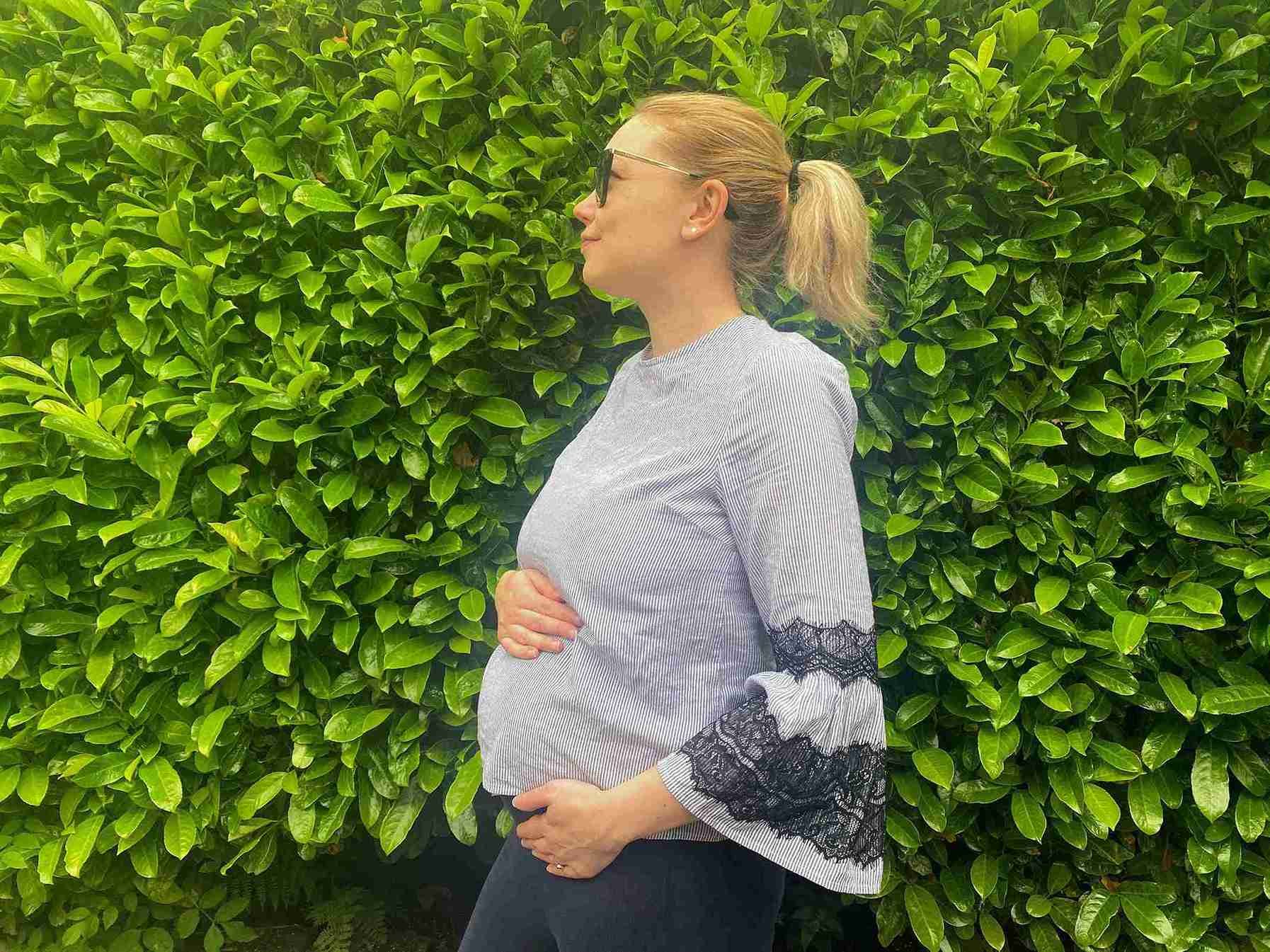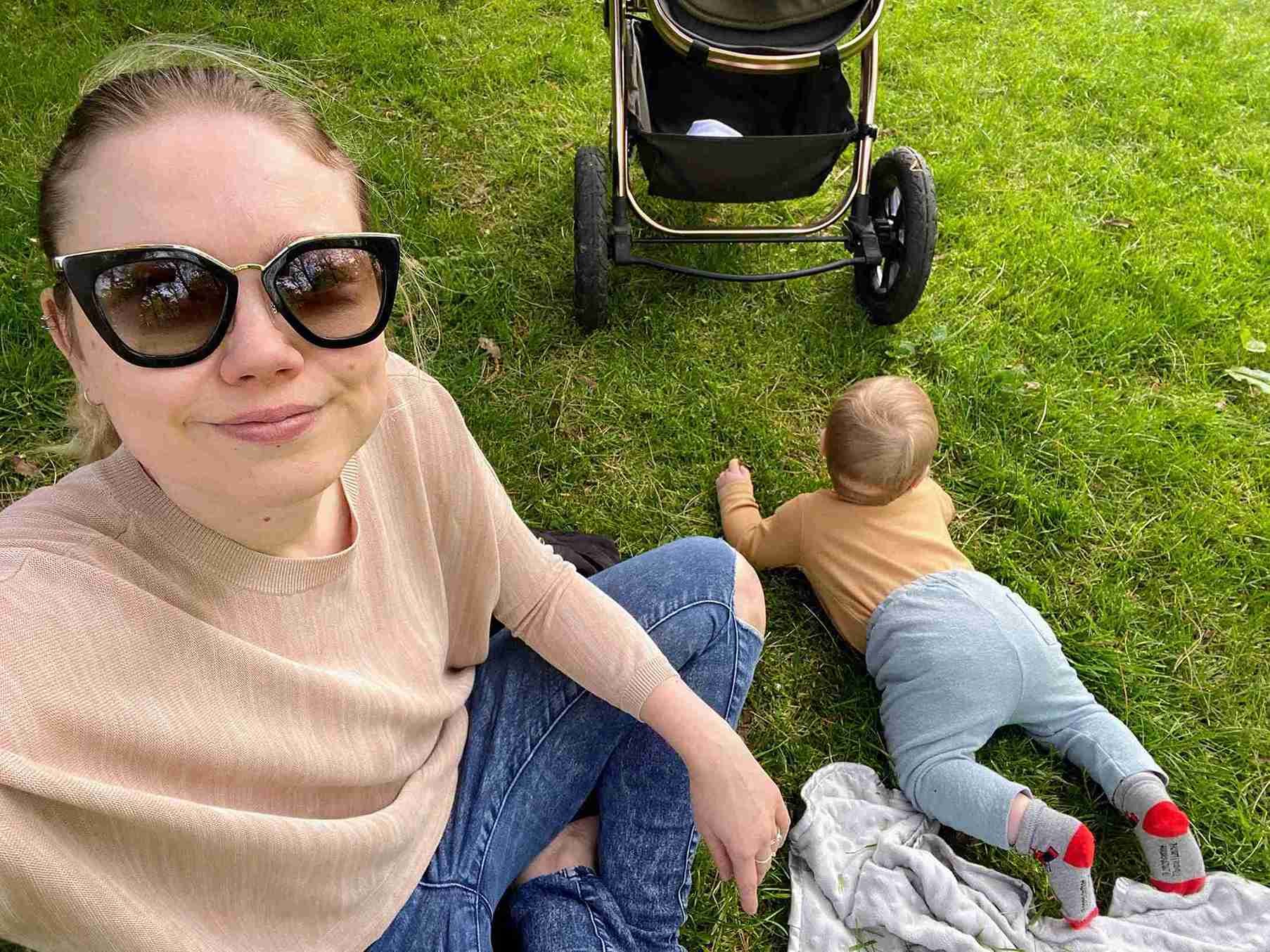Motherhood w/ OCD-What it Looks Like & What Helps
by: Jennifer Sizeland
I’ve always wanted to be a mother, but when I got my later-in-life OCD diagnosis at the age of 30, I couldn't ever imagine being able to take care of anyone else with this burden on my shoulders. I was afraid of passing my illness onto them and being so mentally ill that I’d be physically unable to look after my children.
It was hard to imagine becoming a mother while dealing with a condition that had such a profound impact on my life without me even knowing. Even though it felt like a blow at the time, it turned out to be a blessing; finally knowing what was wrong with me helped me to understand how to live with it. I started seeing a psychologist as well as looking for ways to manage my anxiety so that I could become a mother.
It took a few years to gradually reduce my anxiety; I had a highly pressured and unstable career in the media industry. However, I slowly but surely learnt to look after myself better. I used my diagnosis as a driving force to slowly turn my life around by surrounding myself with better people, a less stressful job and doing more of the things that I loved.
When I turned 34, I felt ready to try for a baby as I knew there would never be a ‘perfect’ time to do so. Pregnancy was fine aside from the initial sickness but much like any parent, it was impossible to plan for such a huge experience. However, it was like a bomb had come off in my life. Being so out of control after this seismic shift in my life triggered my OCD and anxiety crept back up on me.
A pregnant Jennifer
I slowly adapted over the first year of my son's life. Having OCD makes me feel hyper-responsible for everything in my life. Looking after a newborn felt like a terrifying and overwhelming task. I felt like if I didn’t constantly check on him, especially when he was in the car seat or in his pram, something would happen to him and it would be all my fault.
Prior to motherhood, I experienced intrusive thoughts, anxiety attacks, compulsive behaviour, and obsessions based on trying to have a perfect house and be outstanding in my career. After having a baby, they were still there but in a lesser way than before due to the effort I’d put into managing them. My biggest issue was obsessively checking if my son was breathing, which lasted for over a year but it has largely stopped now that he is older. It was so intense that I would make sure he was breathing over 100 times a day.
He is nearly 2 now and I'm glad I jumped into parenthood, even though it did impact my recovery by causing my anxiety attacks to return. The worry of parenthood, combined with intrusive thoughts meant that I was constantly on edge. I was so exhausted that it made it difficult to manage my mental health in the same ways that I had before. There is also the hormonal influence which pushed and pulled me in different directions before slowly returning to normal. Regardless, I feel proud that I didn't let having OCD dictate such a big life decision and that’s why I wanted to share my advice with other parents and carers.
Jennifer and her wee baby.
Here are my tips for navigating motherhood while dealing with OCD that worked for me:
Find the right kind of professional help
It's important to work with a mental health professional who has experience in treating OCD. This is because they can provide you with coping strategies, tools, and therapy to effectively manage your OCD symptoms. Consider behavioural therapies, like CBT or DBT to help you reframe certain worries and challenge them. Cognitive Behavioural Therapy was helpful for my OCD as it showed up in my professional life.
I’ve worked with a few therapists, but after I gave birth I worked with a family counsellor, as I wanted someone who understood the mental challenges that come with parenthood.
Learn about medication
For some people, medication may be crucial to help manage the symptoms of OCD. If you have any concerns then see your doctor who can discuss any potential benefits and risks in order to prescribe the right treatment for you.
I have taken medication a few times for anxiety and OCD and now I don’t take it any more. From my experience, speaking to a doctor as well as doing research helped me to understand the side effects and what to expect so that I didn’t have unnecessary anxiety about how antidepressants work. Medication works differently for everyone, which means that it is hard to know exactly how you will feel until you try it.
Educate yourself on OCD
Understanding the nuances of OCD can help demystify a condition that can sometimes feel scary. Look for reputable sources; read books and articles, as well as attend support groups to learn about OCD, its triggers, and ways to cope with it. I found Break Free from OCD: Overcoming Obsessive Compulsive Disorder with CBT to be helpful as well as Bryony Gordon’s Mad Girl.
Develop a routine
I’ve found that having a consistent daily routine as a parent is useful for reducing the stress that puts you into ‘fight or flight’ mode. While it is impossible to plan everything, a loose itinerary can provide a sense of structure and predictability, which can lessen your anxiety and the intrusive thoughts that come with it.
I didn’t have a routine prior to becoming a parent so having a more structured day has been an unexpected benefit to raising a child.
Practice self-compassion and self-care
As a mother, it's easy to put your needs last, but taking care of yourself is essential to being a present and compassionate parent. Making sure that you get as much rest as you can, as well as engaging in activities that you enjoy, can help you feel more fulfilled and in control.
I’ve worked really hard to avoid feeling guilty about looking after myself, even for just taking a shower, because I know that the only way to be the best mother to my son is if I am mentally well.
Speak to your support network
Don't be afraid to seek support from your partner, family, or friends. Having people who understand your struggles and can help with childcare or household tasks can be a relief, as it’s an opportunity to share the responsibility.
When I first had my son, I tried to do everything and keep the house perfectly clean and it made my intrusive thoughts worse so I had to lean on my partner for help which made a big difference in my feelings of being overwhelmed.
Look at where your stress comes from
Stress can exacerbate OCD symptoms so it’s important to know what triggers it. Practice stress-reduction techniques such as mindfulness, deep breathing exercises, or yoga which can all help reduce tension in your body.
I try to work smarter both in my job and in parenting and let go of the things I don’t need to worry about; it makes my day easier and I am also more productive.
Be patient with yourself
Set realistic expectations! Learning to live with OCD is a process which can take time and effort, and it's harder with a child! Ensure to celebrate your progress, no matter how small, as well as be kind and patient with yourself along the way. Remember that no parent is perfect, and it's okay to have bad days. Don't be too hard on yourself when things don't work out as planned.
I used to set impossible goals for myself, to be at a certain place in my career and to take my son to a certain number of places, but I had to let go of them to stop myself from spiralling. Now I make my goals more achievable, like going to the shops or the park.
Jennifer rolling her son down a lane in his pram.
Always remember that OCD does not define who you are as a mother or a person. With the right support and tools, you can manage your OCD effectively and be the best mother you can be for your child. If you ever find yourself struggling, don't hesitate to reach out to a mental health professional for guidance and support.
Jennifer smiles at the camera.
Jennifer Sizeland is a freelance writer and assistant producer with 13 years of experience in the media industry. She has written for many publications including the BBC, the Independent, Metro, Reader’s Digest, Gastro Obscura, Fodor’s Travel and her own sustainability blog called Land of Size. She lives in Manchester and you can follow her on Instagram at @lifeofsize.
If you find this post valuable and believe in the mission of Mental Health Tings and would like to partner with us financially, you can make a one time donation by buying me a coffee!
You can also make a recurring monthly donation by signing up for our Here for the Blog $10 a month Patreon Tier.
All donations go toward the subscription cost of maintaining the website as well as payment for the various guest bloggers.
Thank you!




